May 26, 2010
Click here for the full written transcript of this podcast episode
In this May 26 free audio episode: how to know if your carbohydrate intake is proper, how long should it take for the heart rate to recover after exercise, are some fruits better than others, eating before a morning workout, how to stop appetite cravings, cardio before weights or weights before cardio, should athletes train their body to burn fat, does getting stronger make you faster, do you have to give up a muscular body to be an Ironman triathlete and is something called “Zone 3” training bad?
Remember, if you have any trouble listening, downloading, or transferring to your mp3 player just e-mail [email protected] And don't forget to leave the podcast a ranking in iTunes – it only takes 2 minutes of your time and helps grow our healthy community! Just click here to go to our iTunes page and leave feedback.
Also, Ben just made available a “100% Vegan Nutrition Plan”, along with a “4 Weeks Before A Triathlon” Nutrition & Training Plan, and a “12 Week Fitness and Fat Loss” plan ALL AVAILABLE NOW at Ben's fitness, triathlon and nutrition plan download page, at http://www.trainingpeaks.com/pacificfit. Just click here!
—————————————————————-
Featured Topic: “Carbohydrates and Blood Sugar Testing”
In this featured topic, I interview Dr. Richard Cohen from Bioletics. Our discussion includes:
-Why traditional blood glucose tests can be ineffective…
-How to know exactly how your body is responding to your current carbohydrate intake…
-Why you need to pay attention to blood sugar, especially if you're an athlete….
-New, cutting-edge procedures for evaluating your carbohydrate status…
-What is an “A1C” test?
-And much more!
If you want to know more about your blood sugar and carbohydrate management, you’re going to want to listen to this interview. Dr. Cohen really knows his stuff, and is on the cutting-edge when it comes to dispelling old-fashioned medical concepts. His entire Bioletics program can be best understood by listening to the interviews about the six key performance factors in podcasts #53 and #62 (which you can find by clicking here). If you’re ready to get started and want to testy our own internal performance factors from your home, just click here to go to the Bioletics website to begin your six key performance factor testing or call Bioletics at 888-371-1033, ask for Dr. Richard Cohen, and tell him that Ben Greenfield sent you.
—————————————————————-
1. The Marathon Dominator officialy launched on May 20 at midnight and is now LIVE! This is a complete program designed for the complete beginner who wants to ease themselves into a marathon, all the way up to the advanced marathoner interested in breaking their PR! Click here to learn more, and to find out about all the bonus items Ben Greenfield is including with the Marathon Dominator.
2. Ben Greenfield has joined The Quick & Dirty Tips Network at http://quickanddirtytips.com/health-fitness/exercise to produce a new feature called “The Get-Fit Guy”, which is the latest addition to the network's top ranked iTunes podcasts and free online advice column. Go subscribe in iTunes and leave a ranking!
3. Ben just made available a 100% Vegan Nutrition Plan, along with a 4 Weeks Before Ironman Nutrition & Training Plan, and a 12 Week Fitness and Fat Loss plan ALL AVAILABLE NOW at Ben's fitness, triathlon and nutrition plan download page, at http://www.trainingpeaks.com/pacificfit. Just click here!
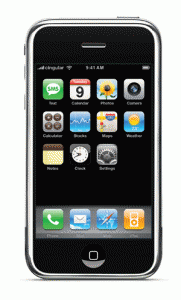 4. Get insider VIP tips and discounts from Ben – conveniently delivered directly to your phone! Just complete the information below…
4. Get insider VIP tips and discounts from Ben – conveniently delivered directly to your phone! Just complete the information below…
—————————————————
Listener Q&A
Mark asks: “I regularly run with a heart rate monitor. At the end of a short run, perhaps 30 minutes or less, I'm used to seeing my heart rate quickly drop to below 120 when I slow down to a jog at the end. A couple times now, following runs longer than an hour, my heart rate has barely slowed down when I slowed down. For example, this past weekend following an 80 minute run, I walked for the last 5 minutes, but my heart rate remained in the 140-150 range. When I came to a complete stop in the parking lot, my heart rate actually increased by 10 points over my walking heart rate. It took maybe 5-10 minutes of sitting in the shade before my heart rate dropped below 120. On this long run, I didn't have any water or food (the temperature was in the mid 80s), and I may have been starting to bonk, as I'm prone to low blood sugar. I also was exercising right around, and occasionally above my AT for the last 2 miles. Could any of these factors explain why my heart rate took so long to return to normal?”
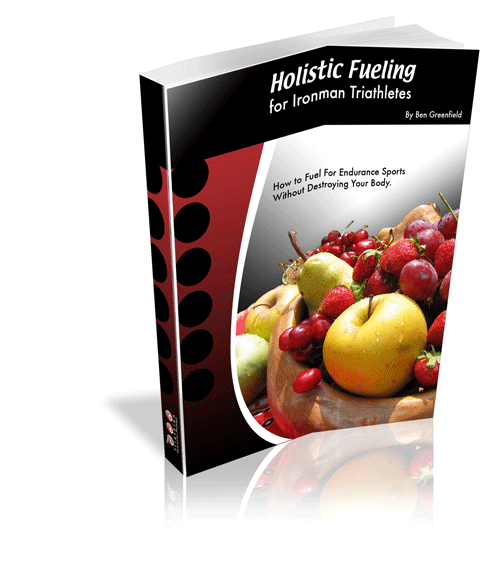 Patrick asks: “In keeping with your Holistic Fueling plan, I've gotten pretty used to keeping nuts (specifically cashews) and fruit on hand to snack on after shorter workouts or for just afternoon hunger pangs. In the beginning I stuck mainly to Granny Smith apples, but now that summer has hit I'm eating more of the sweeter melons like cantaloupe and watermelon. How do sweeter fruits stack up nutritionally with the more conservative choices like grapefruit, pineapple and blueberries? Is there a significant difference from a recovery or general health aspect, or am I splitting hairs?”
Patrick asks: “In keeping with your Holistic Fueling plan, I've gotten pretty used to keeping nuts (specifically cashews) and fruit on hand to snack on after shorter workouts or for just afternoon hunger pangs. In the beginning I stuck mainly to Granny Smith apples, but now that summer has hit I'm eating more of the sweeter melons like cantaloupe and watermelon. How do sweeter fruits stack up nutritionally with the more conservative choices like grapefruit, pineapple and blueberries? Is there a significant difference from a recovery or general health aspect, or am I splitting hairs?”
Anonymous asks: “Living in Virginia, it gets pretty hot in the summer. I like to run in the morning as soon as possible to avoid the heat and humidity. What do you think would be a good thing to eat so I can run but not be starving during the run? I usually eat like half of a powerbar to take the edge off. Runs are usually an hour long. This is also true for swimming–I am part of a masters swim group that meets at 6am. I really don't want to get up and eat at 4:30 just so food wil sit well on my stomach. Any suggestions?”
Olivia asks: “I just finished my first HIM and now that it’s over I think I would like to focus on losing the weight I gained during training. I am 5’8” and weighed 152 pounds before training, but now I’m pushing 159 pounds. What are the chances that this weight gain is muscle? If it’s not muscle I want to lose the weight, but I am having a really tough time eating less now that I am not training as much. Do you have any advice for how to “taper” calories and change the eating habits I started during training? I’m still hungry!”
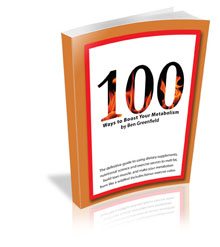 In my response to Erica, I mention: LivingFuel Supergreens, Thermofactor appetite stabilizing supplement, and the book “100 Ways To Boost Your Metabolism”.
In my response to Erica, I mention: LivingFuel Supergreens, Thermofactor appetite stabilizing supplement, and the book “100 Ways To Boost Your Metabolism”.
Eric asks: “I am a big proponent of weight and resistance training, as I believe you are too, and I really like your The Strong Triathlete training guide. My question is that most of the days I lift, I don't have time to split my endurance/ triathlon training and my weight lifting. So an average day might be like a hard 45 minute lift, an intense 60 minute spin class, and then a 5-7 mile run with some intervals thrown in. I know have depleted a lot of my glycogen stores during the lift and so this always makes the cycling and running a lot harder, but by knowing the times and paces I want to hit, I am able to maitain the same outcomes as days I didn't lift. So if this is the case, is better, worse, or indifferent that I lift before all the training? Also, when I can confined to a gym as days like this, these workout can be 2:30- 3 hours- should I be eating something during this and if so when? After the lift?
Omar asks: “I have been told that i have a very nice body. This is a result of a lot of weight training that I'm used to doing after playing football in college. I am down to 85kg (about 187lb), but I can´t seem to shed more weight and, honestly, I'd like to still have a nice body. Is this something I'll have to sacrifice in order to be a good Iron Man? I'm 6'3”, so it's not like I'm huge, although I do know that i have alarge volume compared to most people my size, I just don't weight all that much. When I get your Ironman Dominator package, will I be able to consult with you in order to maintain both my goals in check?”
Alecio asks: “I am using your Dominator package to prep me for Ironman. I must say for the money it is a steal and extremely useful program. I have use many plans before but nothing comes close to what is included in the Dominator package. So thank you. Also I love the website as it has lots of great information and secrets/tips. My questions about the package are reguarding your heart rate zones and workouts in these zones. When I compare your zones to others progams they seem a bit higher. Also, because of this, it seems that there is a lot of zone three work which from what i understand leads to “mediocre” racing or injury. Do you have any thoughts, or perspective as to why or what the intent is behind training in zone three under your program to help me ensure I am training or applying the appropriate method and approach?”
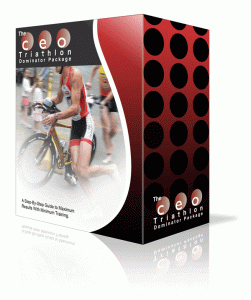 Chuck asks: “As a triathlete, would it make me faster overall to get stronger, especially in the disciplines that have a lot of muscle recruitment like the bike and the swim? I have been doing pretty hard lifting sessions 3-4 times a week, but how can I actually put on the muscle while training at Half Ironman distance volume? As someone who isn't trying to lose weight- I'm 5'11, 154 pounds, 4-5% body fat, will getting stronger have to mean adding body weight, since I would be adding lean muscle, and can this muscle and weight actually be beneficial in getting me faster, not slow me down? Again, not trying to bulk up and lose flexibility etc, just be stronger!”
Chuck asks: “As a triathlete, would it make me faster overall to get stronger, especially in the disciplines that have a lot of muscle recruitment like the bike and the swim? I have been doing pretty hard lifting sessions 3-4 times a week, but how can I actually put on the muscle while training at Half Ironman distance volume? As someone who isn't trying to lose weight- I'm 5'11, 154 pounds, 4-5% body fat, will getting stronger have to mean adding body weight, since I would be adding lean muscle, and can this muscle and weight actually be beneficial in getting me faster, not slow me down? Again, not trying to bulk up and lose flexibility etc, just be stronger!”
Kevin asks: “I am a 47-year-old male, ran my first marathon in the early 80’s and over the years have competed in ultras including runs, long distance swimming, and triathlons. My current marathon time is sub 3:30. I am 5ft 9 and weigh 150 pounds. Back in the late 70’s and 80’s we used to follow a strict carbo load diet pre an endurance event which included, 2 days of no carbs followed by 3 days of carb overdose. In those days, there were no gels or sports drinks. Water tables in races included water, and pop. I primarily drank water, and occasionally watered down coke. What did we know? We ate raisins instead of gels on long runs, sometimes bananas and even had chocolate in the very long events. Then along came Dave Allen who believed in using body fat for endurance events, with the theory of training at a low heart rate to encourage the body to use fat as opposed to carbs for fuel. Interestingly, I recently read in a runner’s magazine, two articles both in the same mag. One covered the carb load and the other article dealt with runners that rely on fat for fuel. The no carb runner does not train with gels or sportsdrinks, just using water. The thought being that as the run progresses they get stronger compared to other runners who rely on carbohydrates for fuel. What is your opinion on what works best? Have you ever tried to train your body to use fat as opposed to carbohydrates as fuel? I would be interest to hear your thoughts on this topic.”
Congratulations to Kevin, who was nominated as the top question for this week's podcast! Kevin will receive a free month of membership to the Body Transformation Club, full access to the Club's secret video page, the life-changing piece of Club mail that I will personally send him each week, and much more. To learn more about the Body Transformation Club, click here.
Do you have a question for Ben? Just click Ask a Podcast Question at the bottom of this page and leave a voicemail, leave a Skype voicemail to username “pacificfit”, or e-mail [email protected].
——————————————–
Remember, if you have any trouble listening, downloading, or transferring to your mp3 player just e-mail [email protected] And don't forget to leave the podcast a ranking in iTunes – it only takes 2 minutes of your time and helps grow our healthy community! Just click here to go to our iTunes page and leave feedback.  Brand new – get insider VIP tips and discounts from Ben – conveniently delivered directly to your phone! Just complete the information below…
Brand new – get insider VIP tips and discounts from Ben – conveniently delivered directly to your phone! Just complete the information below…
——————————————————


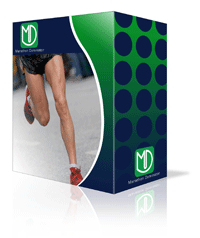
Great Q&A on this podcast, lots of interesting stuff. Thanks for for the consideration for us plant based athletes by offering the vegan menu plan. As an alternative view to the Cohen A1C discussion, consider the recently published, peer reviewed research of Dr. Neal Barnard. Dr. Barnard reversed type 2 diabetes with a low fat, high carbohydrate, vegan diet. He got dramatic lowering of A1C levels which he hypothesizes has to do with cellular functioning at the mitochondrial level being far more affected by fat than carbohydrate. Of course, these are diagnosed diabetics, not athletes, but the mechanisms should be similar enough to be interesting to investigate.
Re: Ben Greenfield Fitness – New comment requires moderation on: Episode #96: How to Know If You Ate Enough Carbohydrates. Approve